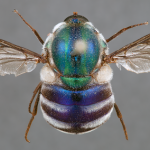
Mice that have been repeatedly bullied are reluctant to approach other mice. Image: Shutterstock.
Being the under-mouse in the pecking order is tough on more than your self-esteem.
Recent experiments at the Rockefeller University in the US have demonstrated that bullying has an effect on murine brain chemistry. The researchers found that bullied mice were not only more nervous around new arrivals, but had a heightened sensitivity to vasopressin, a hormone associated with a variety of social behaviours.
Yoav Litvin said in the press release “We found that chronic social stress affects neuroendocrine systems that are paramount for adaptive mammalian social behaviours such as courtship, pair-bonding and parental behaviours. Changes in components of these systems have been implicated in human disorders, such as social phobias, depression, schizophrenia and autism.”
The researchers devised a school playground-style scenario, where young test mice were placed in different cages with group of older, larger mice over a ten day period. A territorial battle ensued and the new arrival invariably lost.
The mice were then physically separated from each other in the same cage, but still able to see and smell each other- a very stressful experience for the loser. After a rest day, the bullied mouse was then placed in the company of similar-sized, non-threatening mice.
Scientists noted that the bullied test mice were less likely to socialise with the other mice and displayed risk assessment behaviour, indicating higher levels of fear and anxiety. A study of their brains indicated that the vasopressin receptors had increased in the bullied mice.
In humans, vasopression is associated with aggression, stress and anxiety disorders. Studies have shown that although the brain can bounce back over time from being bullied, but this type of trauma can adversely affect the victim’s health for life.
The Jean M. Alberti Centre for the Prevention of Bullying, Abuse and School Violence at Buffalo University, US, is also looking at the effects of bullying in schools. The new director, Janice DeLucia-Waack, said in the press release “(Bullying) doesn’t seem to go away. And there really are some long-term consequences.”
“If you feel powerless and then you suddenly decide, ‘I can be powerful,’. So there is a long-term effect we’re just starting to realize, for the bullies as well as the people being bullied.”






